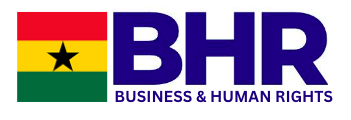
In June 2011, the Human Rights Council, the main United Nations intergovernmental body responsible for the promotion and protection of human rights, endorsed the Guiding Principles on Business and Human Rights. The Guiding Principles had been developed by the then Special Representative of the United Nations Secretary-General on the issue of human rights and transnational corporations and other business enterprises, John Ruggie.1 The endorsement marked a milestone in the decades-long debate about how human rights apply to business. It established the Guiding Principles as the first authoritative global framework to address business impact on all human rights, applicable to both States and businesses, and clarified their respective duties and responsibilities for tackling human rights risks related to business activities. The Guiding Principles have also been endorsed by many companies, business organizations, civil society organizations, trade unions, national and regional institutions, and other stakeholder groups. This has further solidified their status as the key global normative framework for business and human rights.
The Guiding Principles are based on six years of work by the Special Representative, including in-depth research and extensive consultations with companies, governments, civil society, affected individuals and communities, lawyers, investors and other stakeholders, as well as practical road-testing.
